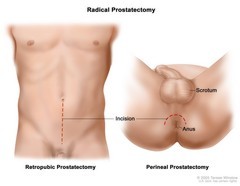- You are here:
- Home »
- Blog »
- non-conventional therapies »
- Fewer PSA Tests Lead to Fewer Prostate Cancer Cases?
Fewer PSA Tests Lead to Fewer Prostate Cancer Cases?

“Both studies found a sharp drop in PSA testing, and one found a significant fall in the rate at which men are getting diagnosed with prostate cancer…”
Screening for prostate cancer (PCa) drops followed by a sharp drop in the number of prostate cancer cases diagnosed. What does this change mean for you? Over-diagnosis and over-treatment in prostate cancer has been pretty-well established.
As the NPR article linked and excerpted below points out, fewer PSA tests has led to fewer PCa diagnoses. Less screening has led to many fewer cancer diagnoses.
- Will there be less collateral damage from biopsies, surgery and radiation?
- Will more men die of PCa?
The answers are first, yes, there is less over-treatment from PSA testing that led to treating early PCa that may never have led to death. And second, we will have to wait and do more research regarding PCa deaths.
Keep in mind that there are many evidence-based, non-toxic therapies that are cytotoxic to PCa. This means that you can lower your prostate cancer risks through easy, inexpensive therapies. I am at high-risk of PCa. I supplement with curcumin, green tea extract, exercise, etc. to reduce my risk of PCa.
I am both a long term cancer survivor and cancer coach. To learn more about prostate cancer therapies, both conventional and non-conventional, scroll down the page, post a question and I will reply ASAP.
thank you,
David Emerson
- Cancer Survivor
- Cancer Coach
- Director PeopleBeatingCancer
Prostate Screening Drops Sharply, And So Do Cancer Cases
“Two studies released Tuesday don’t settle the issue, but they do shed light on the effect of the recommendation against screening: Both studies found a sharp drop in PSA testing, and one found a significant fall in the rate at which men are getting diagnosed with prostate cancer…
But the task force concluded the testing caused unnecessary suffering and that there was insufficient evidence that annual PSA screening significantly reduced the death rate from prostate cancer. That’s because many men get biopsies, surgery and radiation for tumors that never become life-threatening, the task force concluded. The treatment often leaves men impotent and incontinent. In rare cases, treatment can cause fatal complications…
The researchers also found the rate at which men were diagnosed with prostate cancer fell from 505 per 100,000 in 2010 to 416 in 2012. That means 33,519 fewer men were being diagnosed with prostate cancer each year, the researchers calculated…
In 2015, more than 220,000 men are expected to be diagnosed with prostate cancer and more than 27,000 to die from it, according to the American Cancer Society. Prostate cancer is the most common cancer among men…
But others welcome the trend, saying it will save many men from unnecessary suffering.
It’s been clear for many years that there’s a “much greater chance that a PSA test would lead to preventable misery such as impotence or incontinence, compared to any chance of having one’s life saved,”…
Doctors on both sides of the debate also agree it will take more time before anyone knows how the drop in screening and diagnoses will affect one obviously important outcome of this debate: What happens to the death rate from prostate cancer?”

